Daniel is part of the Society's new environmental professional sector.
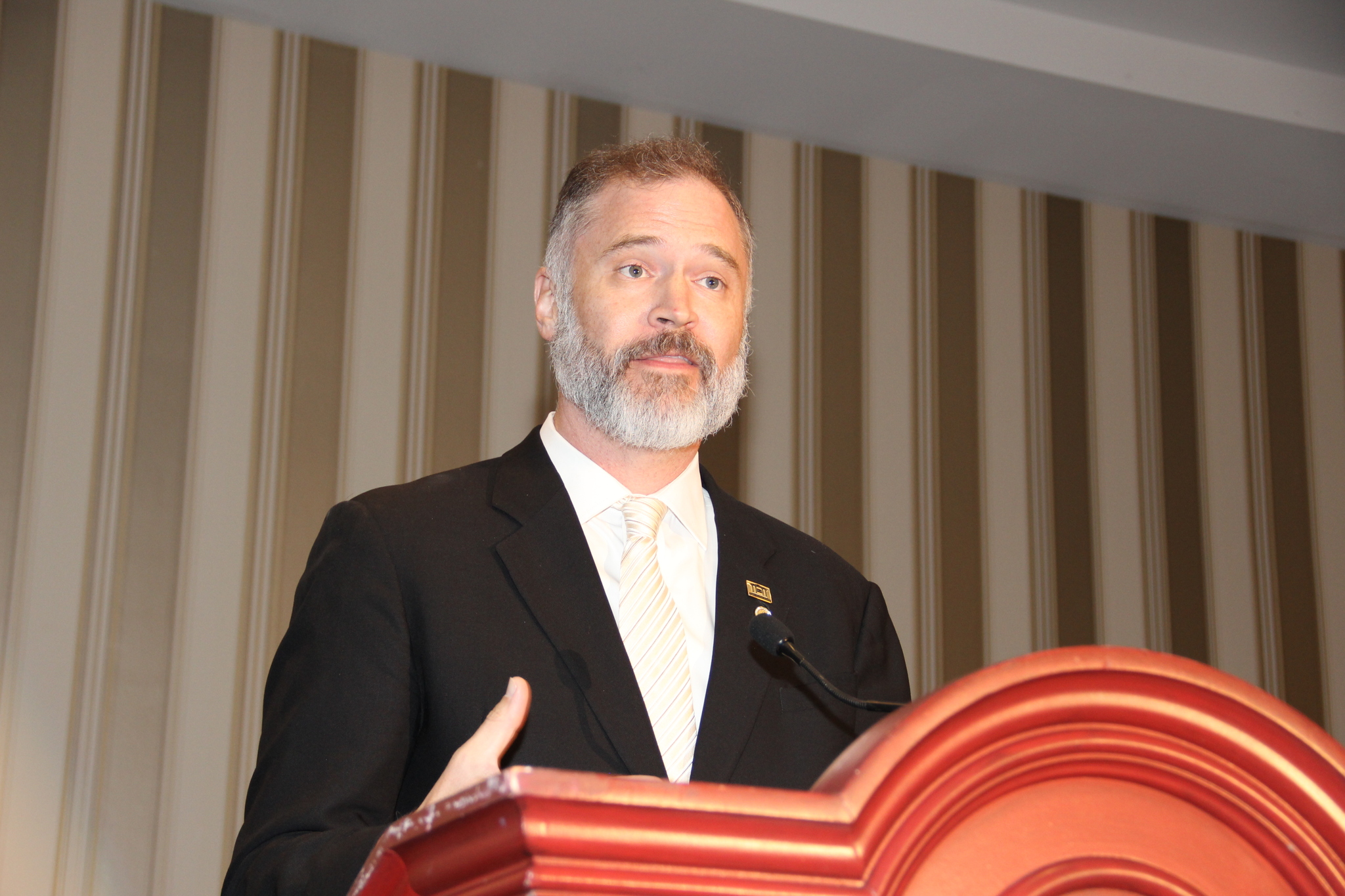
The Society for the Environment handed out its seventh annual awards for exceptional working practices in its field earlier this year. Professor of Environmental Health Engineering at the Missouri University of Science and Technology and SOE member, Daniel Oerther, received a ‘highly commended finalist’ award at the virtual ceremony in June.
Daniel was recognised for his work on COAST, the Caribbean Ocean and Aquaculture Sustainability faciliTy, an initiative to promote sustainable fishing and the protection of endangered marine habitats, including reefs and mangrove forests.
COAST
Unlike other ventures designed to formalise the fishing industry in the Caribbean, COAST is the first-ever use of parametric insurance for this purpose. Governments in the Caribbean purchase COAST, and payouts are made by the insurance company when rainfall, wave height, and strong winds create conditions that prevent fishing and damage vessels and infrastructure.
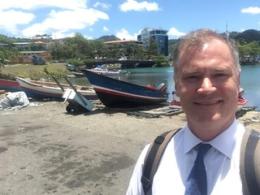
Daniel explained: “In the Caribbean, there are many people that fish without a license and are not part of the system. They’re not part of a formal sector, but they get their food and livelihood there. And so, the real key to making fishing more sustainable in the Caribbean is to help formalise the sector, and to ask the question: how do you take informal fishing operations and change it into a system that the government can at know about, measure, and properly regulate?
“That’s why the insurance scheme was the right solution to the problem. A technological solution might be an app on a phone or some other way to measure fishing activity, but the problem is that there’s no incentive to report yourself as a fisherman. If you can be part of an insurance scheme, to help replace lost income during bad weather or to help get repairs to your vessel after a bad storm, and if the government pays for that insurance scheme, now there’s suddenly an incentive to report yourself to the government,” said Daniel.
This project, despite temporary delays in further rollout due to the coronavirus pandemic, aims to revitalise fishing communities while making catch fishing more economically viable. A critical point was reached in 2009 when figures showed that half the world’s seafood now comes from farms, as opposed to catch. Energy intensive and a possible source of pollution, expansion of aquaculture has put pressure on governments worldwide to consider the environmental impacts and creative solutions to promote improvements in catch fishing.
“The long-term idea here is: if the government buys the insurance and the beneficiary of the insurance is the small-scale fisherman; the small-scale fisherman will now sign up for the insurance for free, but of course now the government knows who you are; and now the government will be able to figure out what you’re catching and tax you for it. So, actually the insurance is paid for by the tax because you’ve turned yourself in to the government.”
Access to water, sanitation and hygiene
Innovative solutions to complex environmental challenges have always been a major theme in Daniel’s overseas projects. Beyond promoting sustainable fishing and agricultural practices for nutrition security, Daniel’s work also promotes access to water, sanitation and hygiene (WaSH). Around the world 900m people still go hungry and 150m people go hungry at a critical time during their growth – when they’re young.
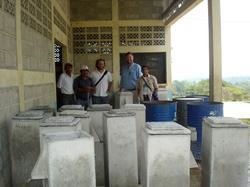
Daniel added: “Stunting is this phenomenon where you’re two standard deviations below the global mean for your age. You’re not a little outside the variation, you’re in the 2% low side. Stunted children grow into short adults with a smaller body size. Typically, stunted adults suffer a reduction in IQ points, by 5-10 points, and because of their smaller body size they are less able to perform subsistence agriculture – this leads to a poverty trap. So what happens is, a parent can’t feed their child when the child is two years old; the child doesn’t get proper nutrition so it grows to small adult, so they can’t earn the income, so they produce small grandchildren. It continues to cycle.
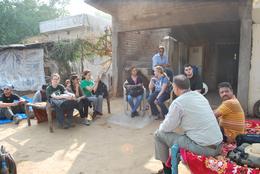
“In some parts of the world like Bangladesh where you’ve got diarrhoea from flooded surface waters or India where you’ve got worms from open defecation, there are certain technological solutions that are known to work well. But the problem in Guatemala is that, in the mountain regions, Spanish is not their first language. Guatemala is an incomplete colony, so people way up in the mountains speak Mayan and live like Mayans. They worship a sun god and process corn using ancient spiritual rituals that are part of a beautiful culture. But when they process the corn in the way they do, it can lead to growth of a fungus that has toxins, which can cause the intestines to inflame.
“Our project in Guatemala is fascinating; it’s attempting to get rid of poverty rooted in bad nutrition, but in a way that is very culturally sensitive. Of course, for the US government this project is important because uncontrolled immigration to the southern border is from countries with tremendous amounts of poverty, so the US government sees value in funding these projects. One option would be to build a wall on the border. The other option is to help empower people living in Guatemala to have better livelihoods. A little help there ends up helping us here by addressing a US national security issue of uncontrolled immigration.”
Chartered Environmentalist
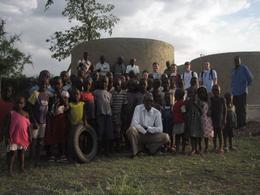
Daniel is registered as a Chartered Environmentalist through the Society for the Environment in the UK. He is also registered as a Chartered Engineer through the Society for Operations Engineers where he holds Fellow-grade membership. The US model for professional registration is different to the UK. In the US, engineers are licensed by the local state government, rather than through a professional society. Because Daniel has done much of his overseas work in Commonwealth countries, he obtained chartered status from a UK registration body.
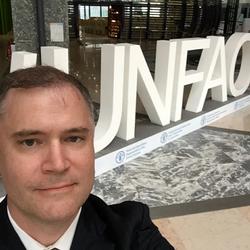
“To me, having a UK credential makes a lot more sense when I’m working in Commonwealth nations. Independent of anyone’s view on Brexit one way or another, I can intellectually understand that the UK is the leader of the Commonwealth and that is a different entity than the European Union.
“For me, it is more important to be member of UK registry rather than the EU. I work very globally, and so the UK credential was the best one to obtain. When I’m working in the Caribbean or India, to be a CEnv or CEng is actually the right credential,” said Daniel.
In part two of this interview, Daniel talks about how the US is attracting young engineers to the profession, the importance of diversity, and how some universities differ in their approach to educating engineers.
To express your interest in joining the new environmental professional sector, email: [email protected]
Images: Top to bottom.
L-R Daniel at St Lucia landing site.
Visiting a drinking water filter construction site in rural Guatemala.
Daniel and students conducting a household interview in rural Gujarat, India.
Daniel and Engineers Without Borders (EWB) team members and villagers from Otho Abwao, Kenya, inaugurating the water distribution system.
Daniel at UNFAO Headquarters for 43rd meeting of the Committee on World Food Security October 2016.

